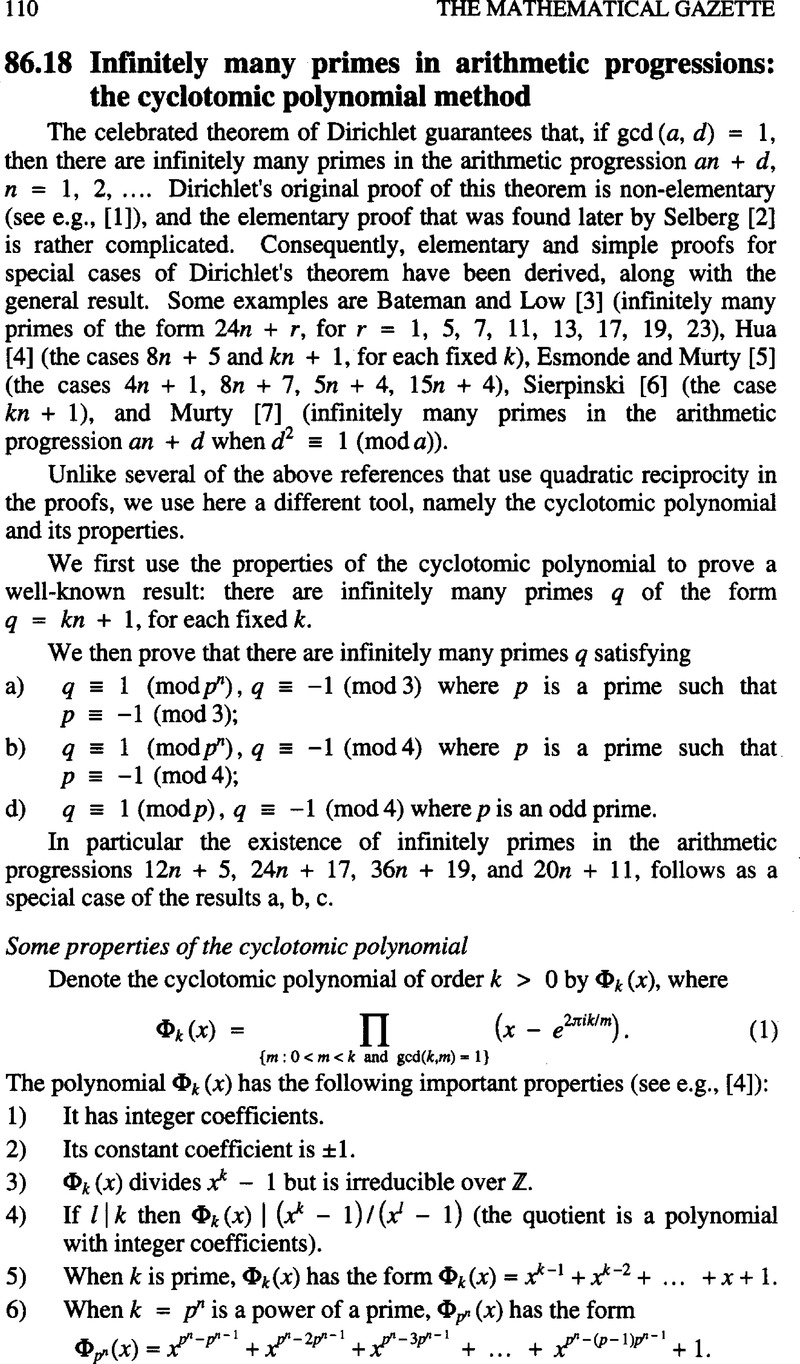No CrossRef data available.
Article contents
Infinitely many primes in arithmetic progressions: the cyclotomic polynomial method
Published online by Cambridge University Press: 01 August 2016
Abstract
An abstract is not available for this content so a preview has been provided. Please use the Get access link above for information on how to access this content.

- Type
- Notes
- Information
- Copyright
- Copyright © The Mathematical Association 2002
References
1.
Dickson, L. E.
Modern elementary theory of numbers, University of Chicago Press (1939).Google Scholar
2.
Selberg, A.
An elementary proof of Dirichlet’s theorem about primes in an arithmetic progression, Ann. of Math. 50 (1949) pp. 297–304.Google Scholar
3.
Bateman, P.
Low, M. E.
Prime numbers in arithmetic progression with difference 24, Amer. Math. Monthly, 72 (1965) pp. 139–143.CrossRefGoogle Scholar
7.
Murty, R.
Primes in certain arithmetic progressions, J. Madras Univ. Section B 51 (1988) pp. 161–169.Google Scholar
8.
Shklarsky, D. O.
Yaglom, N. N.
Yaglom, I. M.
The USSR Olympiads Problem book, Dover, New York (1993).Google Scholar




